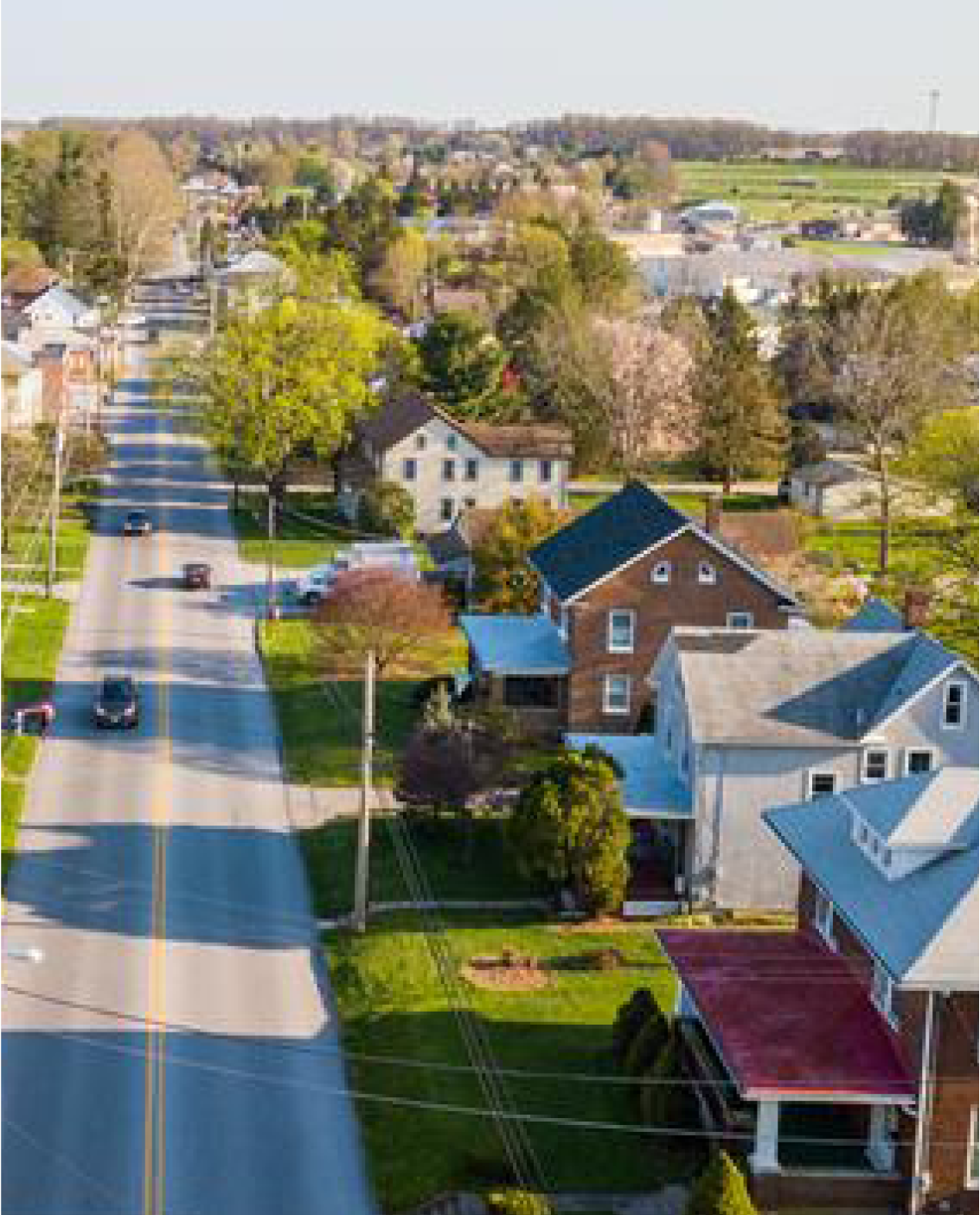New Jersey Land Bank Launch Initiative
A joint initiative between the Center for Community Progress and the Housing Community Development Network of New Jersey.
The New Jersey Land Bank Launch initiative was designed to build knowledge and capacity across the Garden State about land banks, a powerful tool to address vacant, abandoned, and deteriorated (VAD) properties. Throughout this two-year initiative (2023-24), Community Progress and the Housing Community Development Network of New Jersey (HCDNNJ) worked alongside local partners and directly with community leaders interested in exploring land banks as a tool to advance local equitable revitalization goals in New Jersey.
Education (webinars) and co-learning (interviews with stakeholders across the state) were the focus of the initiative in the summer and fall of 2023. In the winter of 2023, we invited communities to competitively apply for scholarships that provided no-cost technical assistance to explore the utility and value of creating a local land bank to support equitable neighborhood revitalization. In early 2024, scholarships were awarded to three communities: Atlantic City, Salem, and Plainfield.
Through the two-year initiative we learned a land bank could be a useful and impactful tool for some cities, particularly those with significant inventories of VAD properties that are causing harm to neighbors and neighborhoods. We also learned other cities are experiencing rapidly appreciating real estate markets and declining vacancy rates, which is a trend to celebrate. Communities that still have VAD properties need to be thinking strategically and with urgency on how to acquire, or compel the transfer of, these properties to mission aligned partners to meet critical community needs. Local governments could achieve that by either establishing a land bank (for widespread vacancy) or leveraging the existing legal tools under the Abandoned Properties Rehabilitation Act (for scattered vacancy).
Check out the following resources developed in support of the New Jersey Land Bank Launch Initiative:
- Webinar: Land Banking 101: An Introduction to Land Banks and the New Jersey Land Bank Law | Presentation Slides
- Webinar: Land Banking in New Jersey: Lessons Learned from Newark and Advancing the Field of Practice | Presentation Slides
- Land Bank White Paper
- Brief: Land Banking in New Jersey 101
- Brief: Enhancing Capacity to Repurpose New Jersey's Vacant Properties
- Memo: A Land Bank in Salem, NJ
- Memo: A Land Bank in Atlantic City, NJ
This opportunity was made possible through funding from the Robert Wood Johnson Foundation (RWJF). RWJF is committed to improving health and health equity in the United States. In partnership with others, RWJF works to develop a Culture of Health rooted in equity that provides every individual with a fair and just opportunity to thrive, no matter who they are, where they live, or how much money they have.

In July 2019, Senate Bill No. 1214, the “New Jersey Land Bank Law,” was signed into law. The New Jersey Land Bank Law permits New Jersey municipalities to form land banks by entering into an agreement with a nonprofit or public redevelopment entity to serve as the municipality’s land bank. However, the pandemic stalled efforts to capitalize on this new community development tool. Now with renewed energy for addressing persistent housing challenges statewide, the time is right for New Jersey communities to explore the potential for land banks to address persistent VAD property challenges and advance equitable community development.
Land banks are flexible, nimble public entities endowed with special powers by state legislation that can acquire, hold, and then steward large inventories of vacant, abandoned, and tax-delinquent properties to productive reuses that support equitable community development and improve neighborhood resiliency consistent with local priorities and needs. Land banks have proven to be critical community development tools in a range of geographies and under varying conditions, whether to help with recovery efforts in the wake of economic or national disasters or to support equitable development in neighborhoods that struggle under the weight of decades of chronic disinvestment and unjust policies.
- In New Jersey, land banks act as an agent for the municipality or municipalities that created the land bank to address VAD properties. Key provisions in the New Jersey Land Bank Law include:
- A municipality can enter into a land banking agreement with an existing public entity (e.g., municipal redevelopment agency or county improvement authority) or private entity (e.g., nonprofit organization) to serve as the land bank for a municipality.
- The agreement between the land bank and the municipality dictates how the land bank will function. Land bank powers for acquisition, disposition, sales proceeds, and other operational functions are provided to the land bank by the municipality via that agreement.
- A land bank can serve more than one municipality, allowing for a regional approach in addressing VAD properties.
To date, the City of Newark has the only active land bank in the Garden State. While every community may not need a land bank, these nimble community development entities are a powerful tool to address property vacancy and abandonment.
Questions?
If you have any questions about the New Jersey Land Bank Launch Scholarship please contact Liz Kozub at [email protected].
